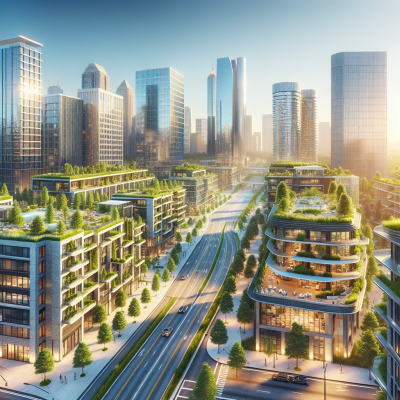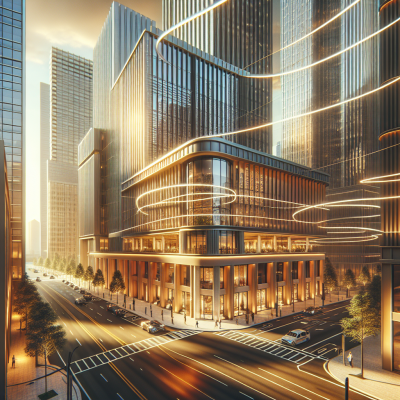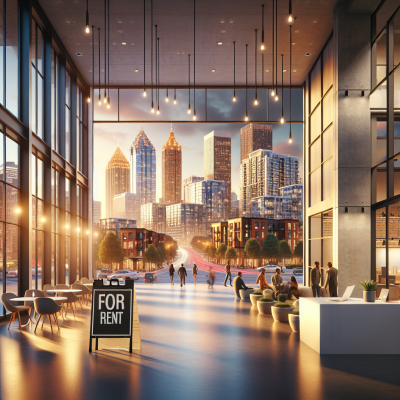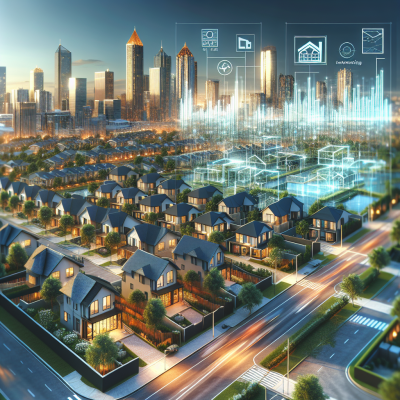
New Developments and Trends
Overview of New Construction Projects
Atlanta's real estate market is undergoing a transformative phase, characterized by an influx of new construction projects. These developments are reshaping the skyline and enhancing various neighborhoods, contributing to the city's dynamic growth. A key focus of these projects is the blend of residential, commercial, and mixed-use spaces, which aim to create vibrant hubs that cater to the diverse needs of Atlanta's residents and businesses.
One notable new construction is the Centennial Yards project, located in downtown Atlanta. This ambitious mixed-use development envisions transforming what's currently an underutilized area into a bustling district replete with retail spaces, offices, residences, and entertainment venues. The project is designed to connect with Atlanta's existing infrastructure and offer modern amenities, setting a new benchmark for urban living.
Another significant project is the expansion of West Midtown, which has seen a surge of new developments including luxury apartments, boutique hotels, and trendy restaurants contributing to its reputation as a thriving urban neighborhood. This area's industrial past is being creatively integrated with new architectural designs, maintaining its unique character while accommodating modern needs.
In addition to these large-scale developments, numerous smaller projects focus on enhancing local communities by introducing more green spaces and improved transit options. These new constructions aim to not only meet the demand for housing but also enhance quality of life by fostering interaction and community engagement.
Green Building and Sustainability
Sustainability is at the forefront of Atlanta's new construction projects, as developers increasingly incorporate green building practices. This shift aligns with the global push towards environmental responsibility and provides long-term cost savings for developers and residents alike. By integrating eco-friendly features, these projects help reduce carbon footprints and promote healthier living environments.
LEED (Leadership in Energy and Environmental Design) certification has become a common goal among Atlanta's new developments, ensuring that buildings meet high standards for energy efficiency, water conservation, and reduced resource consumption. Developers are also exploring the use of sustainable materials and systems such as solar panels, rainwater harvesting, and advanced waste management solutions.
Another notable trend is the emphasis on transit-oriented development (TOD), which encourages the construction of residential and commercial spaces near public transportation nodes. By reducing dependency on cars, these developments aim to promote sustainable urban mobility and reduce traffic congestion, which is a critical issue in Atlanta.
Community solar projects are also gaining traction, providing renewable energy options that reduce utility costs and environmental impact. Such initiatives empower communities by offering access to clean energy resources, fostering sustainable growth and resilience.
Future Trends in Atlanta's Real Estate Market
The future of Atlanta's real estate market is poised for significant advancements, driven by technology, demographic shifts, and evolving consumer preferences. One anticipated trend is the use of smart home technology, which offers enhanced security and energy management. These features are becoming increasingly standard in new developments, catering to tech-savvy buyers and renters who value connectivity and convenience.
Another emerging trend is the demand for flexible living and working spaces. The rise of remote work and changing lifestyle preferences have fueled interest in multi-purpose properties that accommodate both home and office needs. Co-working spaces and community amenities that facilitate work-life balance are set to become integral components of future developments.
Demographic changes are also shaping the market, with millennials and Gen Z driving demand for walkable neighborhoods rich in amenities. This shift requires developers to focus on creating spaces that provide cultural, social, and recreational opportunities within close proximity.
Additionally, the trend towards modular construction is gaining momentum in Atlanta. Prefabricated building methods offer faster construction times and cost efficiency, enabling developers to meet market demands swiftly while maintaining quality and sustainability standards.
In conclusion, Atlanta's real estate market is evolving with an emphasis on sustainability, technology, and flexibility. These trends not only reflect current demands but also position the city as a forward-thinking hub for future developments. As Atlanta continues to grow, its real estate landscape will undoubtedly adapt, offering exciting opportunities for investors, residents, and businesses alike.







